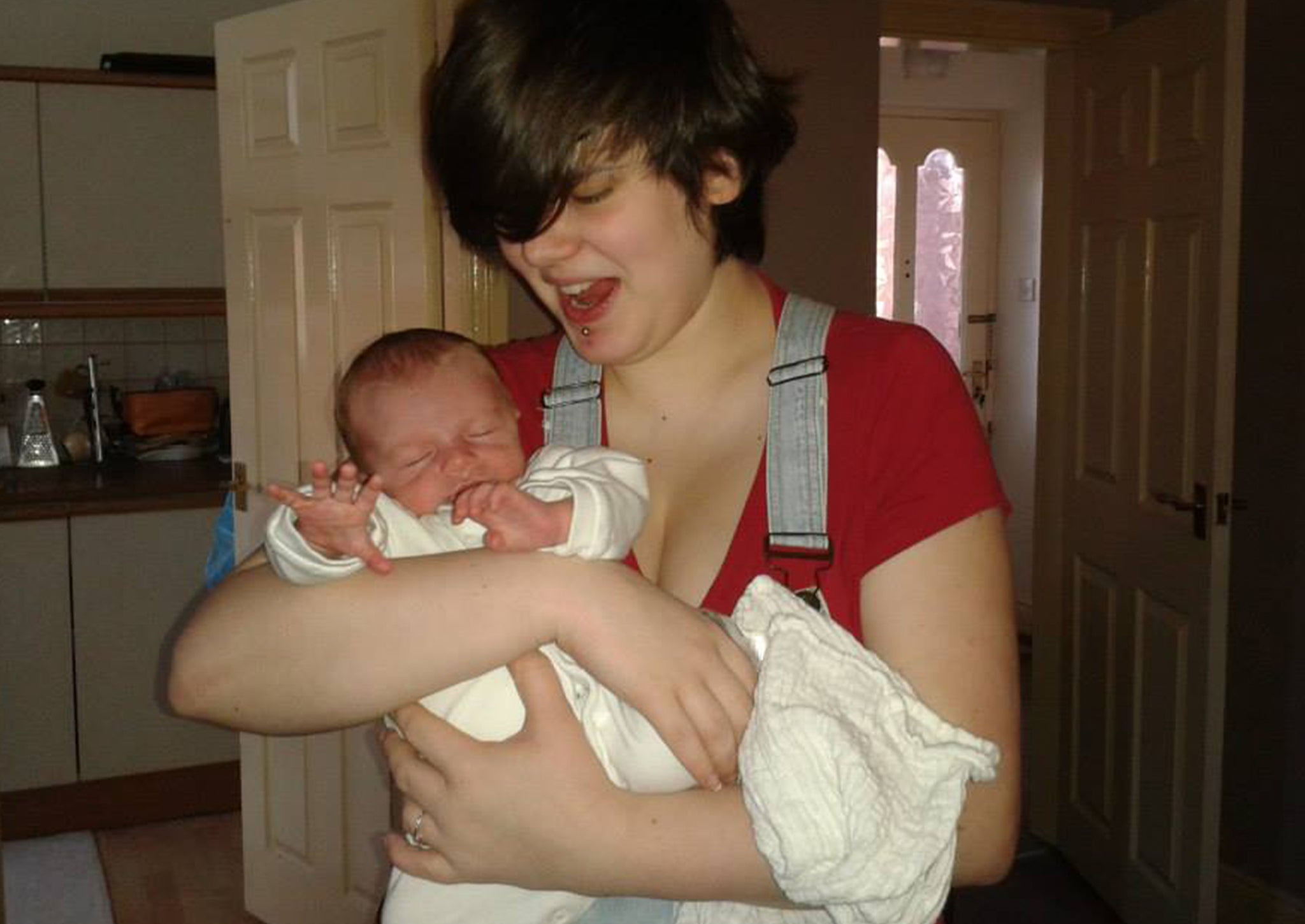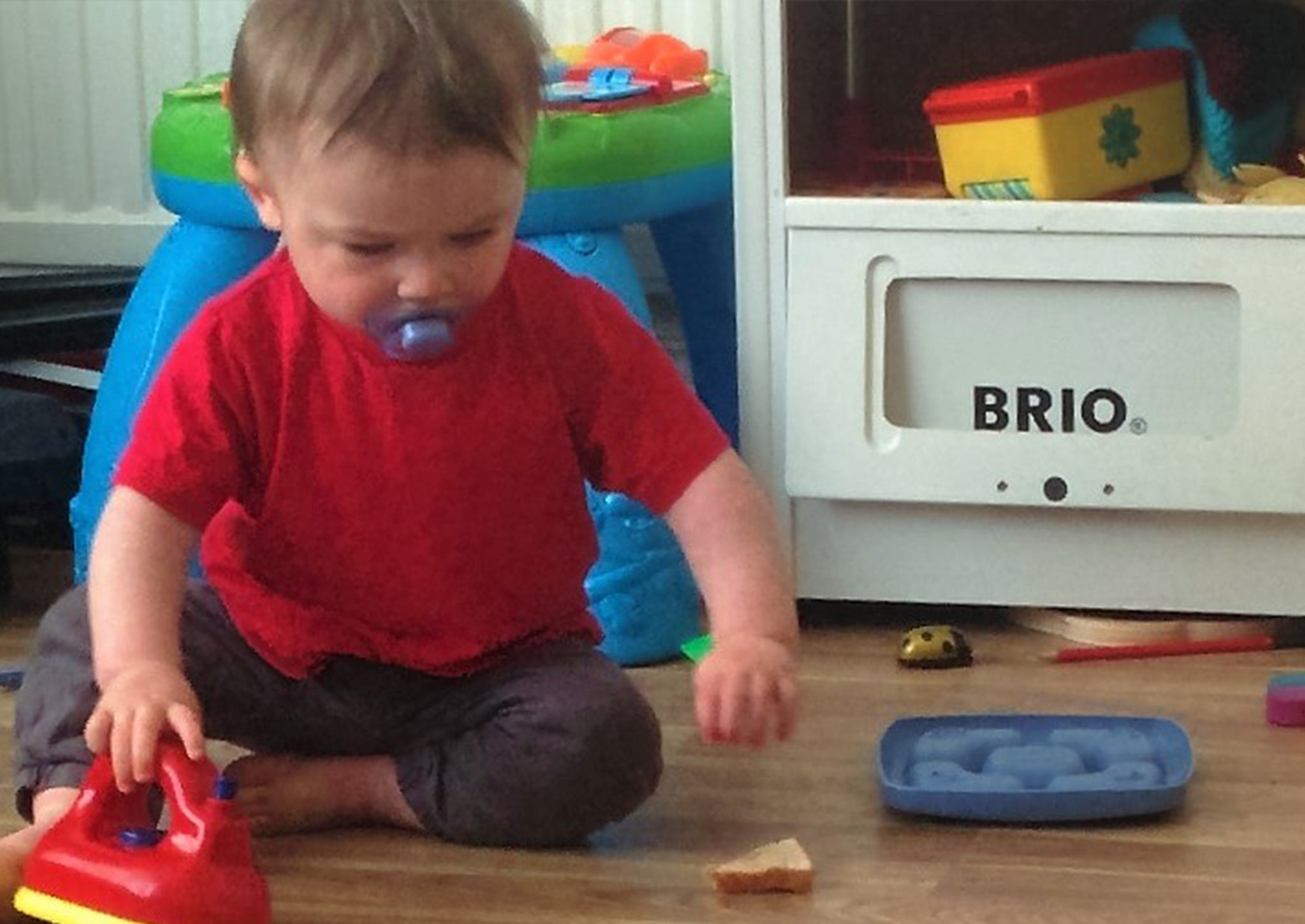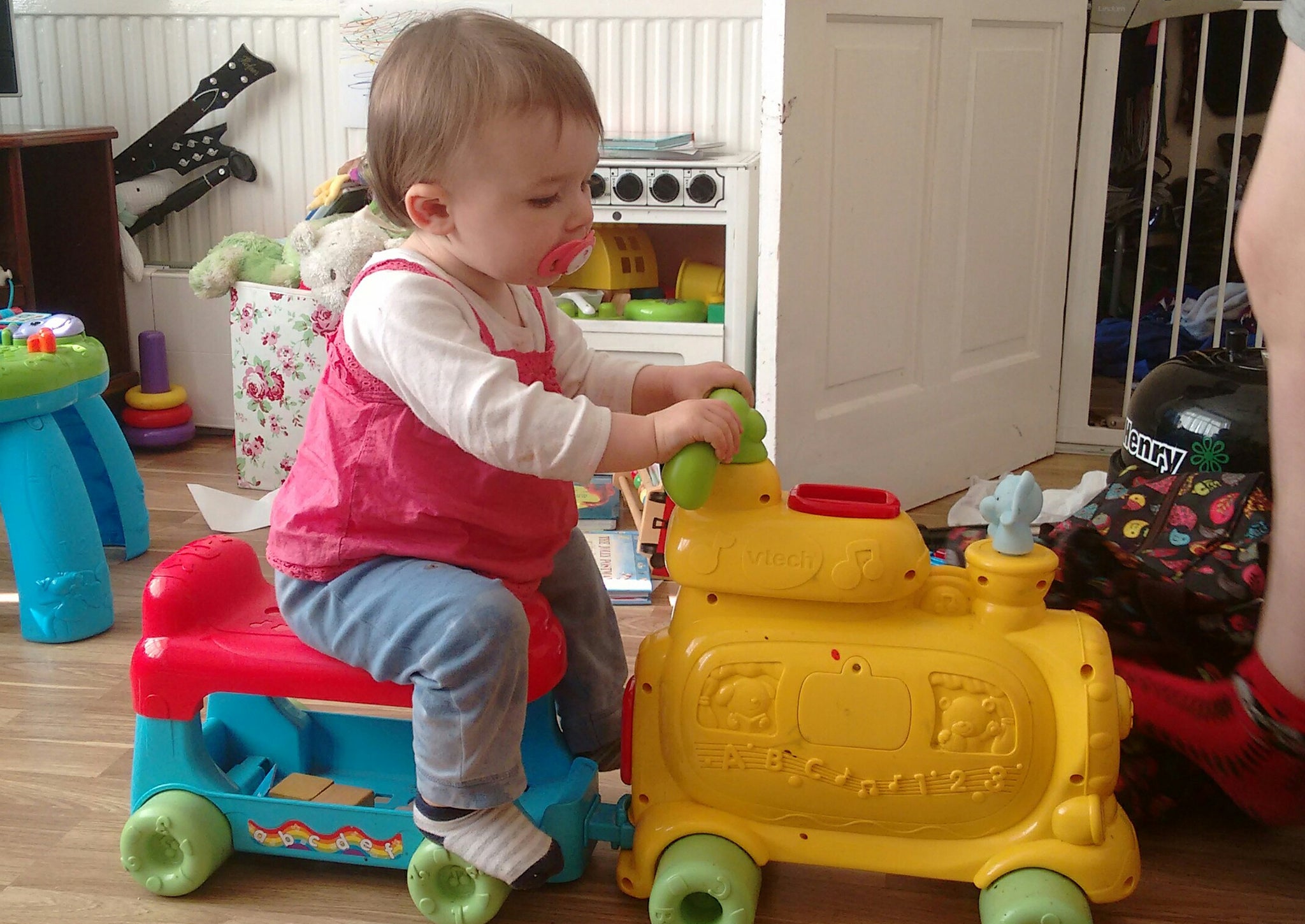Why I call my son 'he', against my better judgement
Bringing up a child in a way that rejects society's obsession with gender is simply too exhausting, but there are ways that they can be shielded from it

It’s a question I’m asked occasionally: “why do you use gendered pronouns for your son?” It's no surprise, as I move entirely in queer circles, and, am a non-binary person who uses “they” pronouns for myself instead of "he" or "she". So naturally people wonder why I'm not allowing my son that neutrality.
As with all things related to gender, the answer to this question about pronouns is long and complex, and can be very difficult to be cutting and funny about. I will try my damnedest to explain without being boring. Be patient with me.
My son was born with a penis and testes. They were identified five months before he was born. Everyone around me had started to ask the fatal question, “boy or girl?”, every time they saw my bump. My brain screamed “neither” – it's nothing! it's a bundle of cells that doesn't even have fingers yet! – but I had to smile politely and make small talk. Our society is gender obsessed, and no more intensely than when it comes to babies. My employer bought me a weird, cutesy towel-tree in a pastel blue, with little cars and aeroplanes on it. I shudder to think what the girl towel-tree looked like.
I have a large, supportive biological family, who are (as the vast majority of people are) uneducated on trans issues and the nature of pronouns. While the majority of them support my right to parent how I wish, very few of them would respect “non-standard” pronouns – they would revert to using whichever pronoun they think matches his genitalia whenever I’m not in the room, and even when present, they would need constant correction.
This gets to the heart of why I made this decision: using non-binary pronouns is exhausting. Society isn’t built with us in mind. We have to accept constant misgendering, rolled eyes, disregard of pronouns, every single day. People eyeing us suspiciously, trying to guess what’s in our knickers. Even people within our community brush us off, pretend we don’t exist, insult and exclude us. I would be bringing him into that, exposing him to it.
I would be trying to explain it to my childcare providers who, in all their wisdom, would mention it to social services. I would be sat, trying to justify to people who can literally take my child away, why neutral pronouns aren’t a denial of identity. I am too tired. I have too many battles to fight.
If the statistics from studies and surveys in New Zealand and the US tell us anything, about 1 per cent of people are trans. I think it’s probably higher than that, but taking it as read, there is only a one in one hundred chance my son will be transgender. There is no need to force him through the neutrality at this young age, to see him constantly misgendered, when there’s not necessarily anything to fight for. He is most likely to simply decide he wants to be a little boy, and that’s fine. What’s important is making sure he knows that he has a choice.
So, in the interest of sharing my knowledge, here are the things we’ve tried to do to make that choice apparent to him.
A variety of clothes and clothing styles and colours

From the moment he was born, I have insisted on dressing my son in clothes from both halves of the shop; the garish pink side and the side where all other clothes reside, the much more functional, cheaper and sturdier side. It's very easy to raise a child with my son’s genital configuration without ever contemplating the other side. I suppose that’s the point. I’ve put effort into buying dresses and tights, clothing with butterflies and unicorns as well as diggers and dinosaurs.
He’s not yet old enough to make all the decisions about what he wears (trust me – we’ve tried, and every time he decides that t-shirts are perfectly functional legwear), so in the meantime I try to make sure he gets a share of everything. His current favourite items of clothing are his Peppa Pig boots – glittery pink and garish.
We met with some resistance when he was younger – I would ask my father to take him for the day, and find he was returned to me in an entirely new outfit, the brightest blue you’ve ever seen. A relative also once refused to dress him in pink in case it “upset” strangers. But that’s the point! I want to upset people. I want to shake up their worldview. If seeing a child in pink upsets you because you don't think they should be, you’re going to be upset. And, to be honest, I don't care. Our non-binary existence upsetting someone is the least important part of my day.
Gender-neutral language

One of the most difficult things to try and adjust to since being a parent is just how gendered our language is – especially the language we use when we’re discussing children. “Good girl!”, “good boy!”, “who’s my little soldier?”, “what a gorgeous girlie!”, and, on a much uglier note, “don’t be such a girl!”. Even when trying our hardest, this language is difficult to escape from, but we’ve put a lot of work into doing so.
These days, we’ve managed to build a good repertoire of stock phrases to use instead. We use “good job!”, or “well done!”, or pet names that are more neutral, like star, pet, or love. We try and make sure we reinforce this as often as possible, since a lot of gender-neutral parenting is undoing the gendered language used by other people he interacts with.
A range of play

My son is now old enough to choose his own toys and express strong preferences. I'd like to think that his choices have been made as free of social implication as possible, thanks to our insistence on providing him with toys associated with both boys and girls. From birth, we’ve tried to present him with as much variety as possible. Dolls, cars, a toy kitchen and a train track, megablocks in blue and pink, and as many soft toys as will fit in a crate. We have made a habit of buying more “girl” toys than boy, in order to counteract the cues from relatives and his nursery.
These days his favourites are cars, trains and dinosaurs. Despite these being traditionally boy toys, I can rest easy knowing he had as many options as possible, rather than having been forced into gendered pursuits. I know the reason he likes cars is because we travel a lot; trains because his mother is an avid steam train aficionado; dinosaurs because palaeontology makes me scream with delight. Knowing that he isn’t secretly pining for a doll and is being disallowed makes me feel much happier. Even if he does think irons are cars with well-placed handles.
There is no way to do this perfectly. Mistakes are always going to be made, and no matter what, some gender norms seep through. I will always quietly wonder if he’s more boisterous because others allow him the space to be loud; if criticism from a school friend will undo all the work I’ve done and make him ashamed of his own interests; if his preferences will be based on a cultural gender boundary I can’t escape. Time will tell. In the meantime, I’ll do my best to shield him from it, and teach him how to show his best “fuck you” to the boundaries around him.
This article was republished with the kind permission of the author. It originally appeared on Beyond the Binary, a submissions-based magazine website that aims to give non-binary people in the UK the opportunity to contribute and share what they are experiencing, thinking and doing, in order to re-balance their lack of representation in the media.